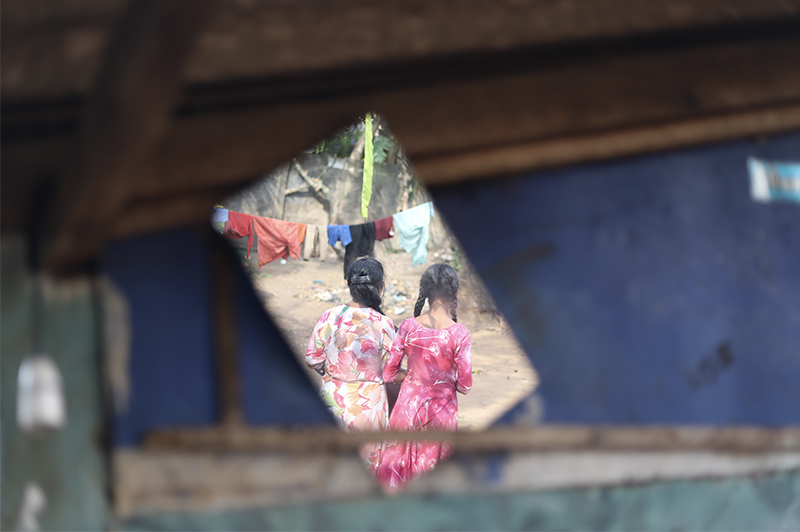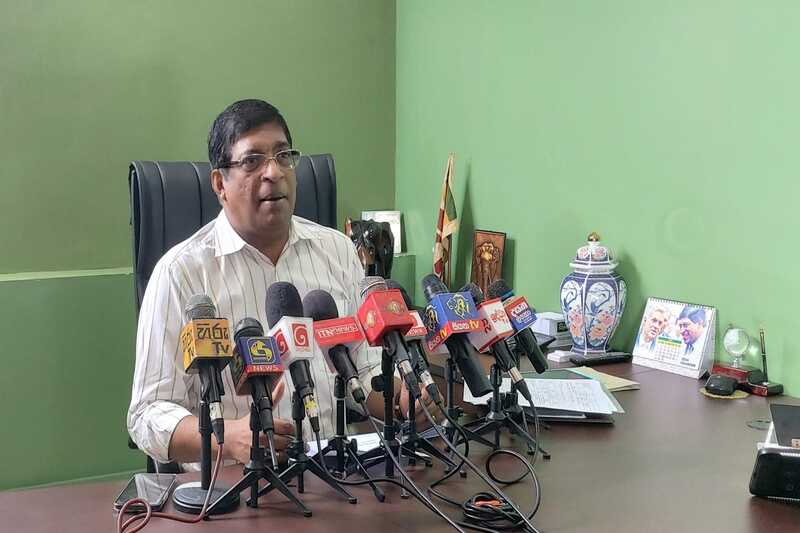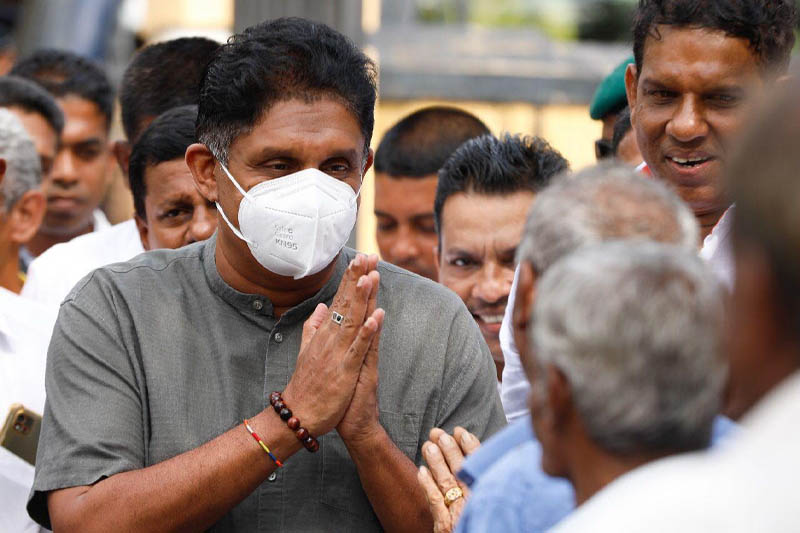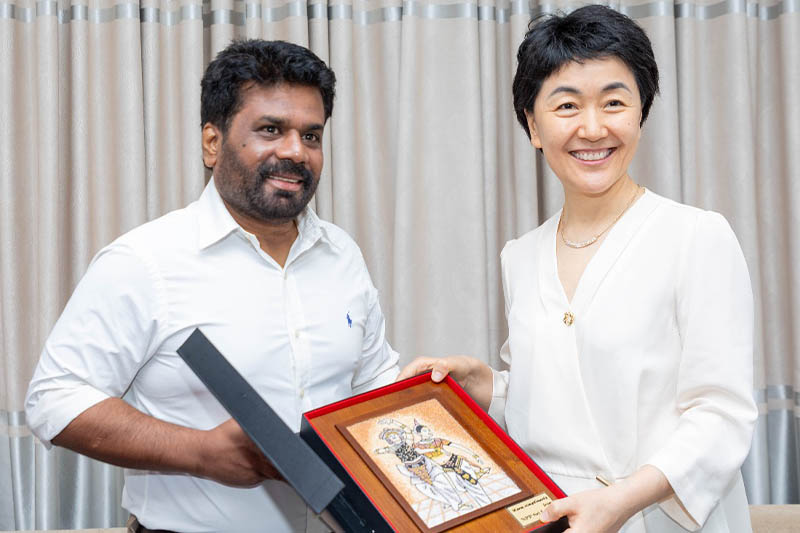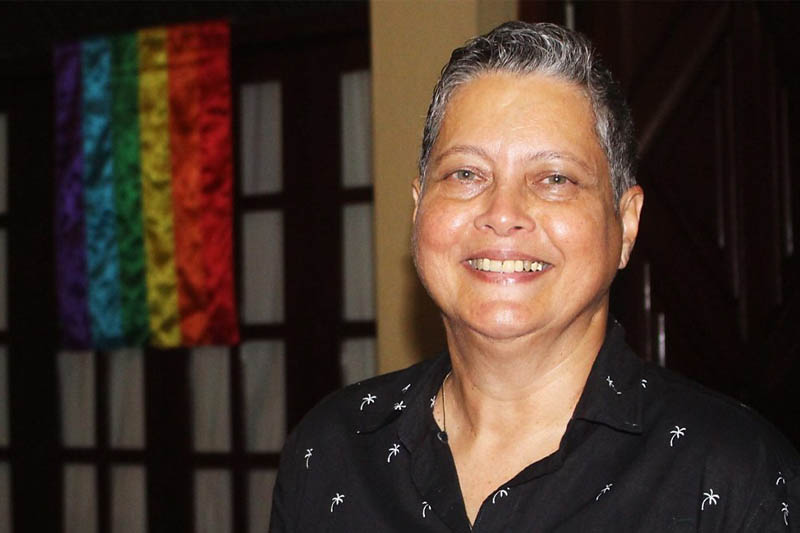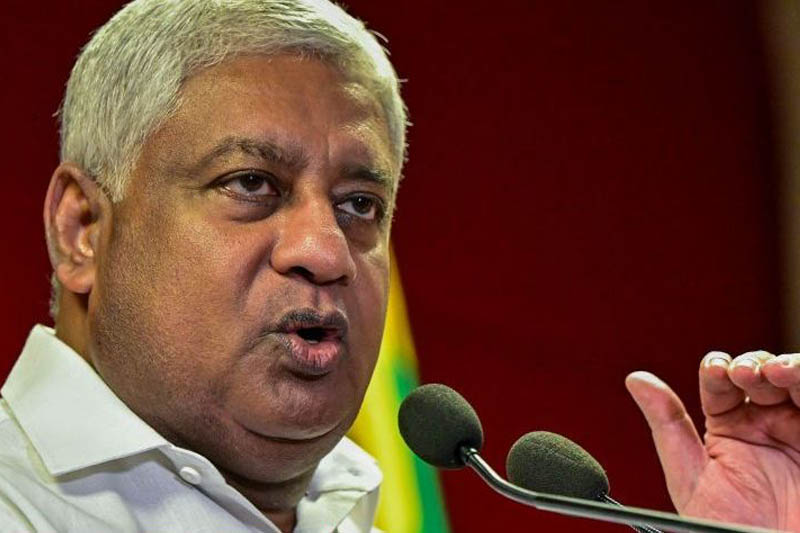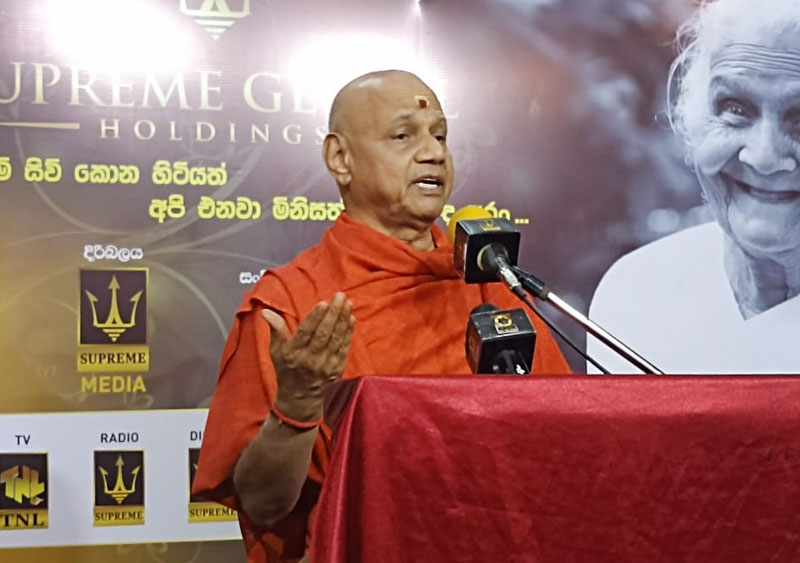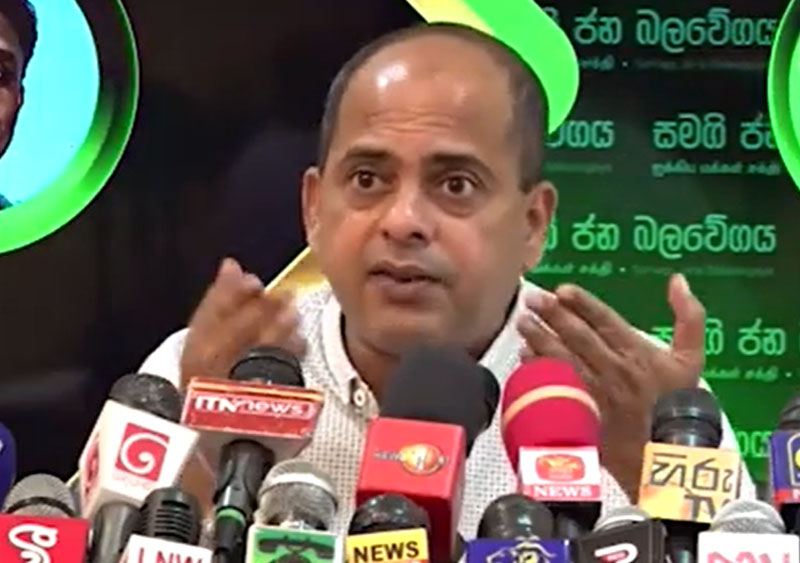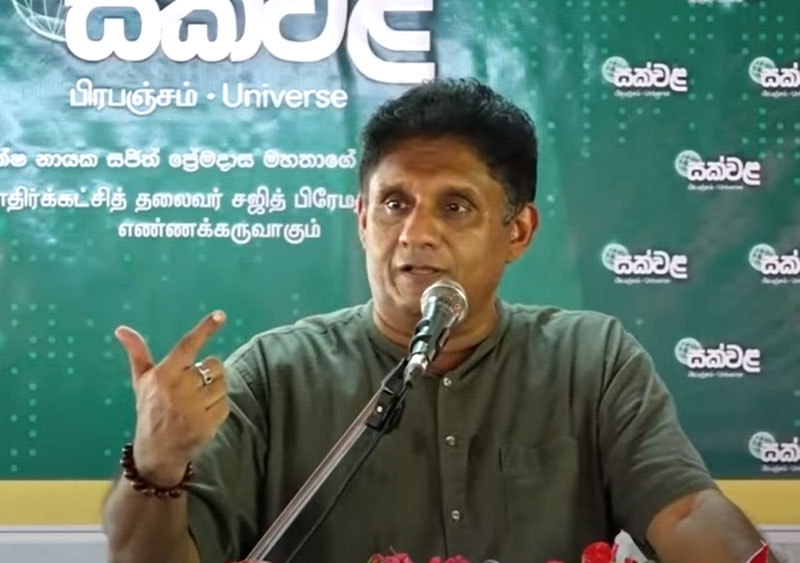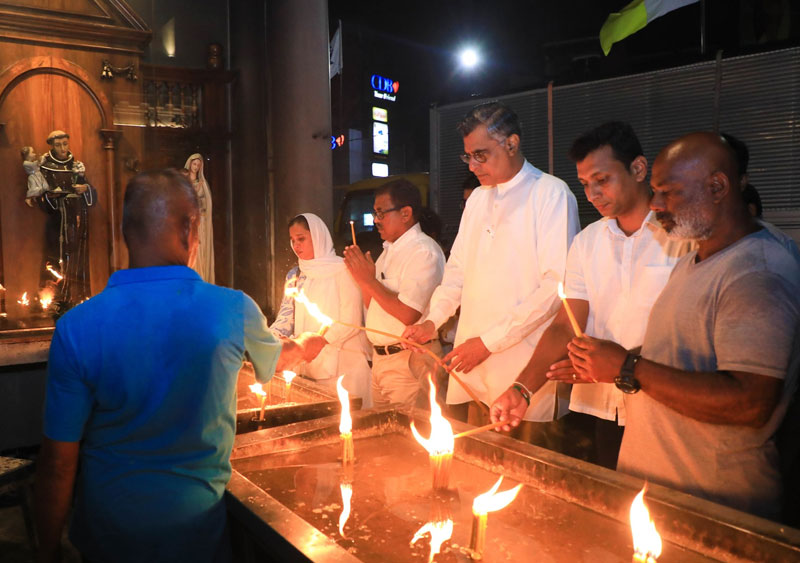It is people who litter the city. These folks rise in the dawn and clean that litter. Thanks to their toil, people can stride in a city devoid of the stink and mess of garbage with pride.
However, those people possess heads foul with divisions of caste, class and religion older than dirt that sanitary workers do not know how to clean. Shouldn’t we at least try on our own to do that? This is such an effort.
The daughter studying in grade three returned home after school looking pretty down in the dump, a look her mom noticed from far. When inquired what the matter was, instead of uttering a single word, she threw out from her satchel bits of paper and other litters. Those were little souvenirs awarded by her friends, the future citizens of the country.
“Some days they push the litter and waste paper on the classroom floor under her chair. The class teacher tells her to put them in her satchel and take them home. Why should they ask her to bring classroom’s litter home? Is it because her father is working in the urban council? Does it mean that she should do the same job?”
Ranjani, a resident of ‘Sakayamatha puram’ questioned so. Her husband is a sanitary worker of Vavuniya urban council.
She is not the only child from Sakayamatha puram to experience such hardships. However, they are not in a position to confront and question the school teachers about the matter for that would probably cost them the rare opportunity for education, despite the discrimination they have to endure. “The teachers minify and harass my child. She says that they never say a word when the other children yell outside the class, but she is scolded just for leaving the class to have a sip of water. Some teachers make her weary of school,” Ranjani shared in pain. “If teachers are such, what about other folks?” was a question she never raised but we pondered.
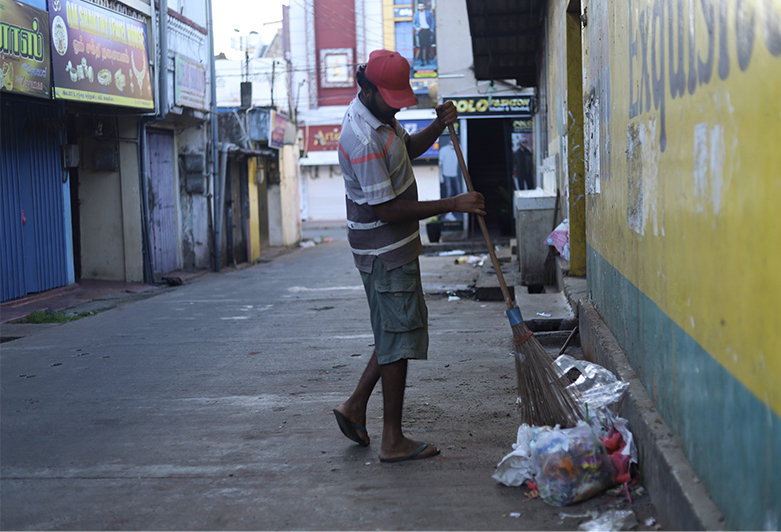
Never ending harassments
The village Sakayamatha puram is located in close vicinity to Vavuniya city in Vavuniya . There are 113 families residing, out of which the majority are sanitary labourers in the urban council. It is a profession perceived to be inferior by social standards and the workers are labelled as low casts by the society. As a result, the residents experience mal-treatment at the hands of the society. She mentioned that they state the name of the village as”Suseipilleyakulam” in day to day life, just to escape the stigma.
Ranjani, born and raised in Anuradhapura moved to Sakayamatha puram following her marriage. The 39 year old has spent 18 years of her life there.
Kalidasan Chithradevi too had migrated from Mulativ to Sakayamatha puram after her marriage. Chithradevi (56) is a mother of three sons and her husband who used to work in the Vavuniya urban Council is now retired.
“All three of my kids learned well. They passed the A/Ls. But they do not have proper jobs. One of my sons got selected for a good job but when he told them the name of the village they have told him they would inform him the starting dates later. All my sons are married to their cousins; finding a match is not so easy when the village is Sakayamatha puram,” she lamented. This painful experience is not limited to her family. It is just a drop out of the pool of grievances of all the residents.
Rest in Peace Humanity!
While travelling in Sakayamatha puram I came across Wasantha Kumar Latha who ran a small boutique at her house. She has been left to raise three kids alone because her husband lost his life while working for the urban council. When a labourer cleaning a sewage pit lost consciousness, three more have climbed down, attempting to save him, resulting the loss of life for all four. Wasantha Kumar Latha’s husband was one of them.
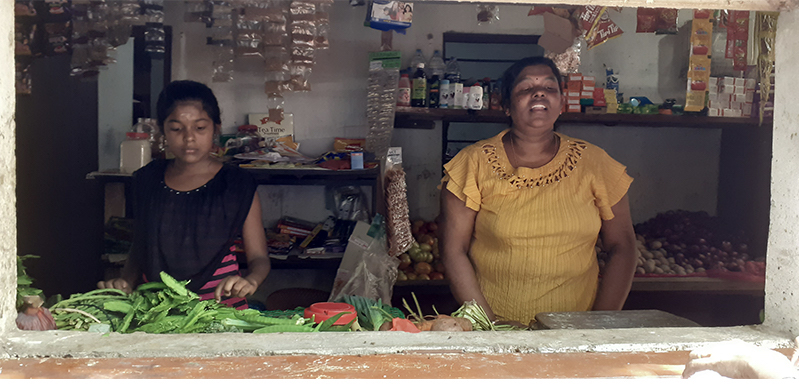
Wasantha Kumar Latha (R) with her daughter (L)
“There is a compensation for my husband because he used to work in the urban council. But he has taken a bank loan and that loan has not been insured. Therefore we do not get his pension. Then I went for a job but my daily wage there was just Rs. 400. Then I started a small boutique. The income from the boutique is what keeps me, my kids and mother in law living. Nobody helps us. In fact they did not support us even during my husband’s funeral saying he was a sewage pit cleaner,” she shared with a trembling voice.
Latha’s eldest daughter is studying in o/L class and her second daughter is in grade six. Her son, the youngest is in grade one. The expenses of three schooling kids are far from minimal. Already burdened by the daily expenses, Latha is even more helpless because they belong to a so called “low caste”, and many refuse to offer their support to her on that ground.
“I live with my three kids in a relative’s place. That is where my boutique is. It would be an immense support if the government could grant me a piece of land or a house. My kids will need a home of their own when they are older,” she added with a sigh.
Discrimination despite the wealth
When travelling around Sakayamatha puram many brick houses with asbestos roofs were observed. Some houses even had boundary walls with fancy gates. Even though the lands were considerably small, there were hardly any shanties. It is true that the economic crisis affecting the whole country has its impact on the residents of Sakayamatha puram as well. However, the life problems allied with poverty is not their biggest concern. They are weighted down and made helpless by harassment and marginalization at the hands of the society.
“There are 113 families living in Sakayamatha puram. Since the majority of them work in the urban council, only 45 families receive the Samurdhi allowance”, revealed S. Niroshani. She had served as the chairperson of the Samurdhi society of Sakayamatha puram for a considerable duration.
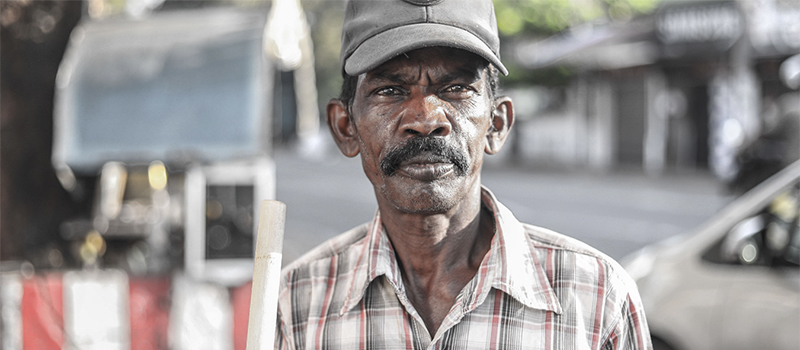
Raman
We met Raman, a resident of the village when he was cleaning the Vavuniya city. The father of two receives a monthly basic salary of Rs.20, 000. Even though he receives a considerable salary when added with other allowances, only a pittance remains in his hand owing to debts. Even though he is not entitled for Samurdhi allowance, being a worker at the urban council, Raman mentioned that his salary is insufficient to buy food.
Raman shared in despair that he, his wife and kids let go of balanced diet and eat whatever they could find. Some sanitary workers of the urban council work as labourers elsewhere without reporting to work for the sake of additional income.
Marriage among relatives- the only solution
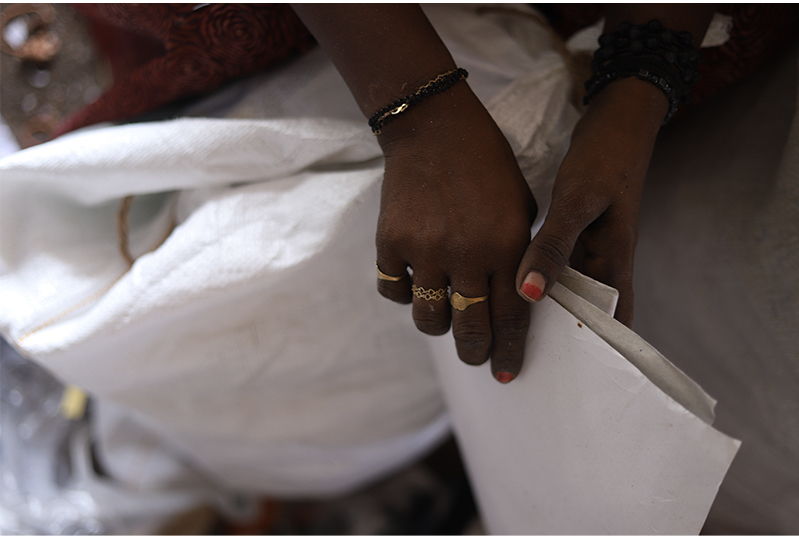
“Kilinochchi is my birthplace. I grew up and studied in Colombo due to the war. I moved here only after marrying a cousin from Sakayamatha puram. My father in law was a worker in the urban council. My husband is a cashier in a cloth shop. He is well educated but they do not recruit him for a proper job. In this village the marriages are between relatives like us. It is impossible to find matches from other villages when they get to know this is the village. I am planning to send my kids to schools far away. Otherwise they too will be affected in future,” S. Niroshani mentioned with her toddler on her lap.
“There is a good school close to our place. Kids of doctors and engineers attend that school. But there are so many hindrances when we try to enrol our kids. But the reason isn’t our poverty; it is all about us being sanitary workers of the urban council. If we would not sweep the roads and clean the latrines who else would do it? Can they live in comfort without that?
But they never consider that at all. Even the higher officials of the urban council look down upon us. They look down on us because of our caste and our job. That makes us feel so helpless,” Raman went on.
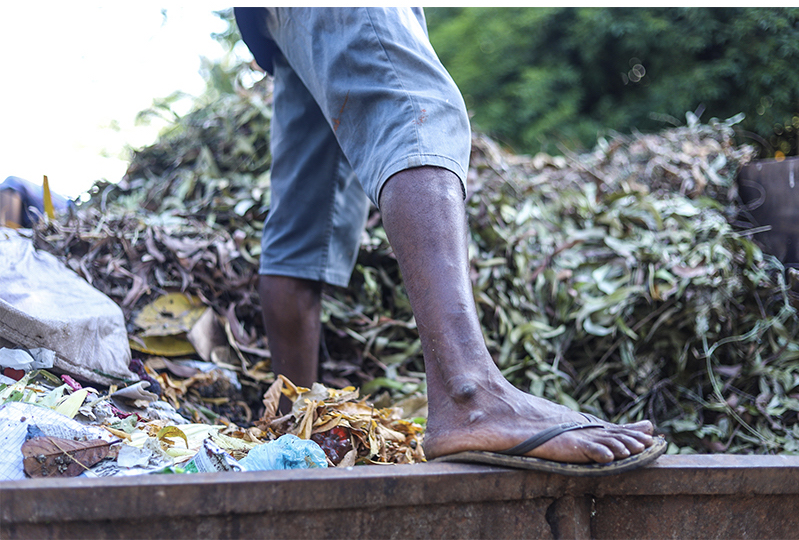
Religion brings more divisions
According to S. Niroshani, even though the residents of Sakayamatha puram belong to the same caste, they are divided further on the basis of religion. The villagers are divided as Tamil- Hindus, Tamil- Roman Catholics, Tamil-Christian and Tamil- other (Pentecostal, Bible etc). However, their caste is the same. You will be surprised to know considering Sakayamathapuram is a Tamil village close to the city of vavunia, that only 13 families follow Hinduism. Around 75 families are Christians. Chithradevi, M. Ranjani, S. Niroshani are Christians. Wasantha Kumar Latha’s family are Hindus.
“My ancestors were all Christians and so we are Christians too. But we know that the people who live close to the Roman Catholic Church and attend that do not think much of us. When Catholics of Sakayamatha puram attend that church, they are supposed to stay at the back,” mentioned Niroshani. This division has more to do with the devotees than the will of the god. It is mentioned in John 41-42 that Jesus asked for a sip of water from a woman of Samaritan community, who were marginalized by the society of Jews. When Jesus’s treatment towards marginalised people was thus, the practice of his followers marginalising others is worth reconsidering.
S. Sureka, the treasurer of the Sri Durga Amman Kovil in Sakayamatha puram stated that conversion to other religions has reduced the number of Hindu families in
Sakayamatha puram.
“Missionaries of different religions visit some families, offer them goods and cash and convert Hindus to other religions. That is a huge issue,” she mentioned.
What makes the Hindus change their religion? Is it the poverty, benefits or for the sake of basic human dignity offered by other religions that the kovil and Catholic Church has failed to offer? This is an entirely separate dimension that is worth exploring.
Behaviour over Caste
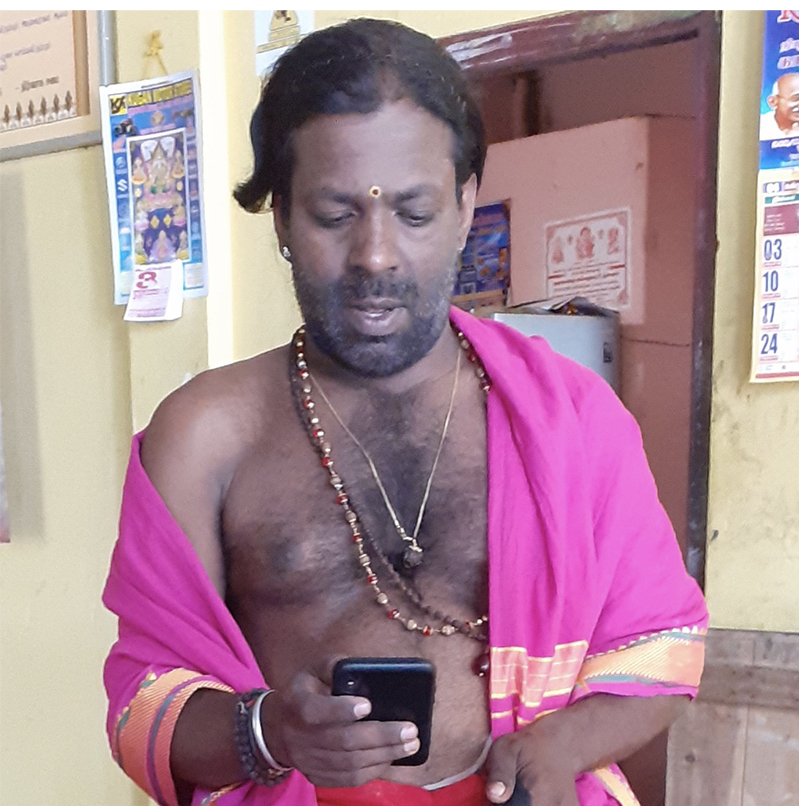
Aireshwar Kulakkar
“There is a caste problem in the village of Sakayamatha puram. The society marginalizes them as outcasts. But that is not an issue for our Kovil; anyone is welcome to worship the gods and seek for help here. We treat everyone equal. But the caste is not the only reason the people of Sakayamatha puram are rejected by the society. A considerable number of men and boys of the area are addicted to drugs. They get drunk and get into fights. And the behaviour of some of them is unacceptable. They reply harshly when spoken to and get into fights. Nobody likes those behaviours. Some of their children swear and the parents are afraid that their kids will get in to the habit of swearing too by mingling with them. That is why I told that cast is not the only reason they are looked down upon,” explained Aireshwar Kulakkar, the chief priest of Sri Durga Amman Kovil of Sakayamatha puram.
According to Aileshwar Kulakkar, their behaviour displays aggressive tendencies. However, who could argue that it could not be their way of releasing the burning trauma of generations of suppressed, belittled souls?
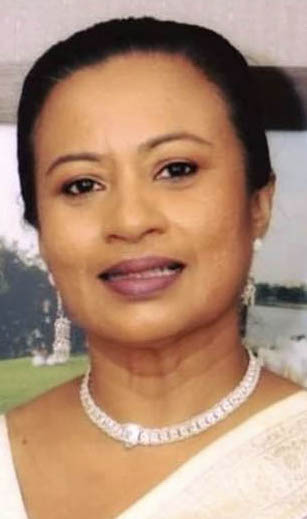
Harsha Sugathadasa
*The writer can be reached at This email address is being protected from spambots. You need JavaScript enabled to view it.
Photography: K. Kumanan

